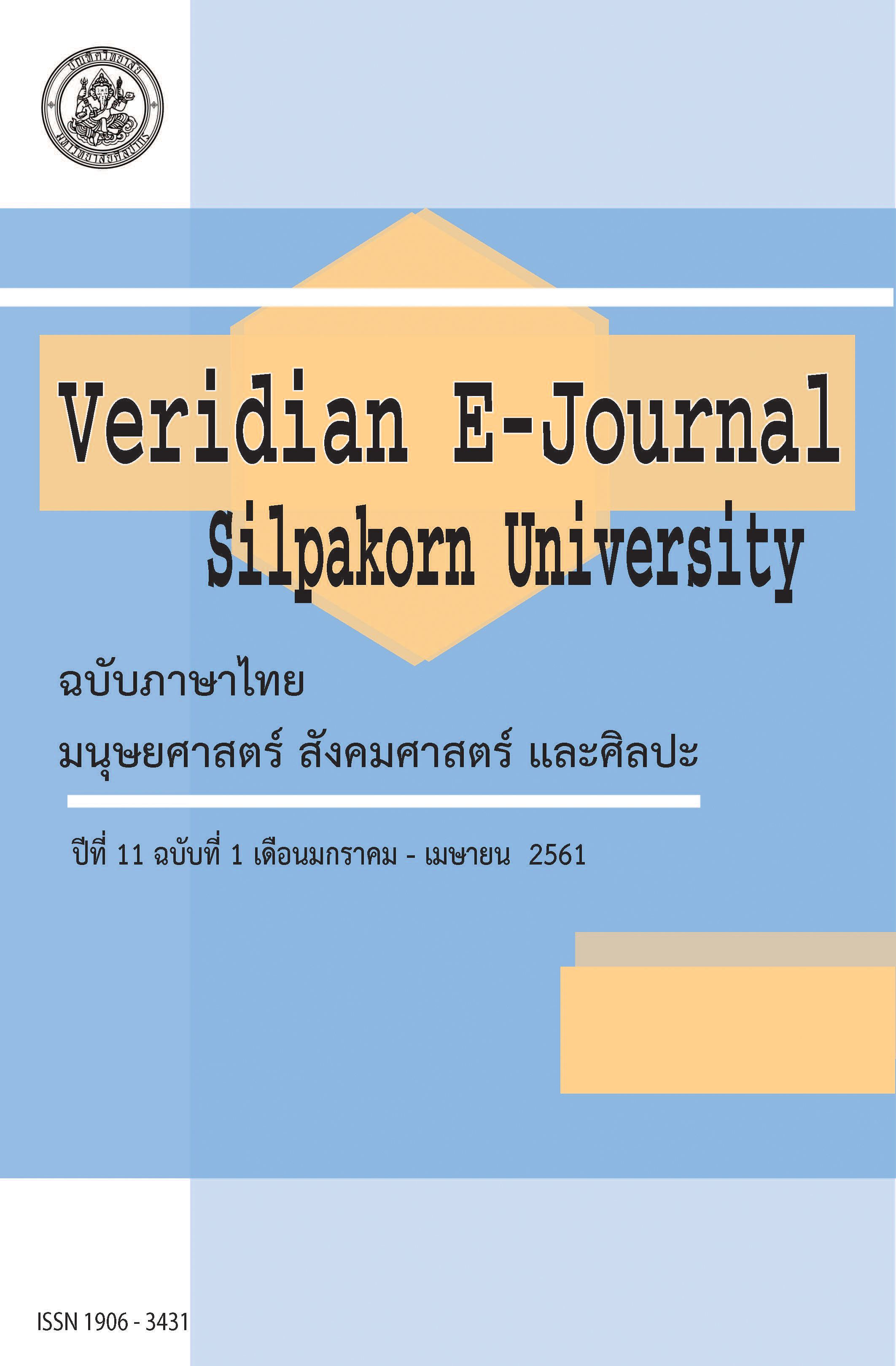การวิจัยเพื่อพัฒนาครูผู้นำการเรียนการสอนโดยใช้สุนทรียแสวงหาของโรงเรียนในสังกัดสำนักงานเขตพื้นที่การศึกษาประถมศึกษาพระนครศรีอยุธยา เขต 1 (Research for the Development of Instructional Leaders using an Appreciative Inquiry in Schools under Pra Nakhon Si Research for the Development of Instructional Leaders using an Appreciative Inquiry in Schools under Pra Nakhon Si Ayutthaya Educational Service Area, Office One
Main Article Content
Abstract
การวิจัยครั้งนี้มีวัตถุประสงค์หลักเพื่อพัฒนาครูผู้นำการเรียนการสอนโดยใช้สุนทรียแสวงหาในโรงเรียนสังกัดสำนักงานเขตพื้นที่การศึกษาประถมศึกษาพระนครศรีอยุธยา เขต 1 มีวัตถุประสงค์ย่อยเพื่อศึกษาความเป็นไปได้ในการพัฒนาครูผู้นำการเรียนการสอน พัฒนาครูผู้นำการเรียนการสอนโดยใช้สุนทรียแสวงหา และขยายผลวิธีการปรับปรุงคุณภาพการเรียนรู้ของครูผู้นำการเรียนการสอน ในการปรับปรุงคุณภาพการเรียนรู้ของครูและนักเรียน กลุ่มผู้ร่วมวิจัยคือ ครูผู้นำการเรียนการสอนแกนนำ จำนวน 5 คน ครูผู้นำการเรียนการสอนเครือข่าย จำนวน 11 คน และผู้อำนวยการสถานศึกษา จำนวน 14 คน การวิจัยนี้ใช้สุนทรียแสวงหาเป็นวิธีวิทยาวิจัย ประกอบด้วย 4 ขั้นตอน คือ 1) การค้นพบ 2) การสร้างฝัน 3) การออกแบบ และ 4) การสานฝัน การเก็บข้อมูลในพื้นที่ผู้วิจัยใช้การสังเกตแบบมีส่วนร่วม การสนทนากลุ่ม การสัมภาษณ์เชิงลึก การใช้เรื่องเล่า และการทบทวนหลังการปฏิบัติ วิเคราะห์ข้อมูลเชิงคุณภาพด้วยการวิเคราะห์เนื้อหา ผลการวิจัย พบว่า 1) ครูผู้นำการเรียนการสอนแกนนำ จำนวน 5 คน ได้รับการพัฒนาและเปลี่ยนแปลงพฤติกรรมการเป็นผู้นำการเรียนการสอน 2) เป็นไปได้ที่จะใช้สุนทรียแสวงหาเป็นกระบวนการพัฒนาครูผู้นำการเรียนการสอน เพื่อสร้างคุณสมบัติของผู้นำการเรียนการสอน 3 ด้าน คือ ความรู้ความคิดในการทำงาน การปฏิบัติที่เป็นแบบอย่าง และความสามารถในการสานสัมพันธ์พัฒนาวิชาชีพ ด้วยความเชื่อว่าทุกคนมีศักยภาพ มีจุดแข็ง ที่รอการค้นพบ และสามารถใช้เป็นพลังในการพัฒนา 3) ครูผู้นำการเรียนการสอนมีคุณสมบัติการเป็นครูผู้นำการเรียนการสอนดีขึ้นเมื่อผ่านกระบวนการสุนทรียแสวงหา 4) มีนวัตกรรมของครูผู้นำการเรียนการสอนแกนนำ จำนวน 12 นวัตกรรม ประกอบด้วย นวัตกรรมสำหรับครูใช้กับนักเรียน นวัตกรรมสำหรับครูใช้กับครู และนวัตกรรมสำหรับนักเรียนใช้กับนักเรียน และได้ขยายไปยังครูผู้นำการเรียนการสอนเครือข่าย จำนวน 11 โรงเรียน เกิดการต่อยอดความรู้ได้นวัตกรรม จำนวน 28 นวัตกรรม
The main objectives of this study were: to Develop Instructional Leaders using an Appreciative Inquiry in schools under Pra Nakhon Si Ayutthaya Educational Service Area, Office One, to examine the possibility of using Appreciative Inquiry for capacity development of instructional leaders and to enhance learning capacity of the instructional leaders and students. Samples consisted of five instructional leaders of pilot schools, eleven instructional leaders of network schools, and principals of fourteen schools under Pra Nakhon Si Ayutthaya Educational Service Area, Office One. The Appreciative Inquiry, which consists of four steps: 1) Discovery; 2) Dream; 3) Design; and 4) Destiny, was used as research methodology. The use of Appreciative Inquiry requires the following process: 1. Find strong points that can be converted into practice; 2. Develop innovations which can be used for capacity development of the instructional leaders; 3. Find role models of instructional leaders. Data were collected from participatory observations, in-depth interviews, focus group discussions, storytelling and after action review. Content analysis was done for qualitative data. The study revealed that: 1. Five instructional leaders have been developed and changed their instructional leadership behaviors. 2. It is possible to use Appreciative Inquiry to develop targeted skills of the instructional leaders, which consist of 1) acquiring knowledge and concept of their work; 2) acquiring capacity to be role models in this area of work; 3) acquiring skills in human relationship and professional development. Under the Appreciative Inquiry Theory, it is believed that all human beings have capacity and strengths which have not been discovered. Once these capacity and strengths are discovered, it can turn into power which can be used for the success of school development. 3. After participating in the Appreciative Inquiry Program, the instructional leaders have higher skills in all three mentioned areas. 4. Twelve innovations developed under this study have been used by the instructional leaders in eleven schools under our network. More innovations had been developed based on these twelve innovations. In total, twenty-eight innovations had been developed by the end of the study.
